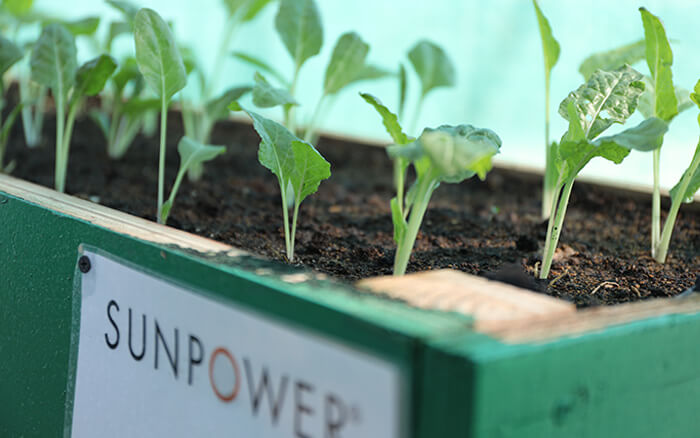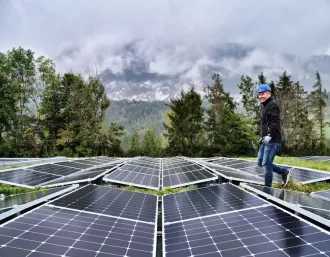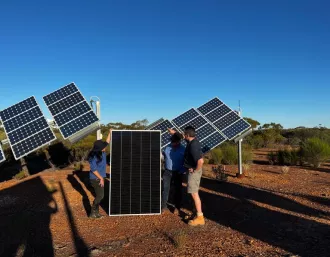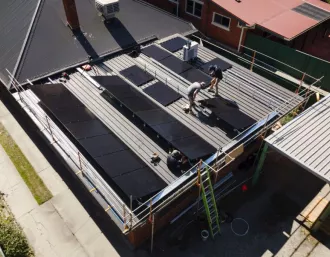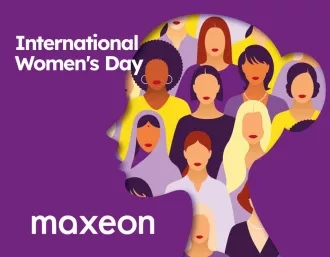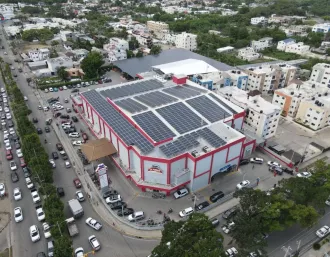More Sustainable by Design

Even solar panels create waste during their manufacturing process. Where and how that waste is directed can tell you a lot about the manufacturer. After all, this decision affects how efficiently our society uses the materials it extracts. We build our products to last: SunPower Maxeon panels have an expected useful life of 40 years.1 SunPower Module 40-year Useful Life. SunPower whitepaper. 2013. And the way we build them is just as important: Our reduction of solid waste and land-filling ensures that all materials that are mined are used to the maximum extent possible.
SunPower panels are made with a focus on reducing waste in the manufacturing process through an award-winning2 SunPower earned the 2015 Guardian Award for Sustainable Business Practices — Recognizing innovation in sustainable business practices, including our approach to landfill. program that includes recycling, reusing and composting local waste. In fact, our panel factory in Mexicali, Mexico remains the first and only solar manufacturing facility to be certified as Landfill-Free. This certification is verified through a highly detailed audit process managed by NSF International, an independent organization that oversees the Landfill-Free standard for companies around the world. The factory has maintained this high bar through annual audits since 2015 and remains an expression of our commitment to sustainability leadership.
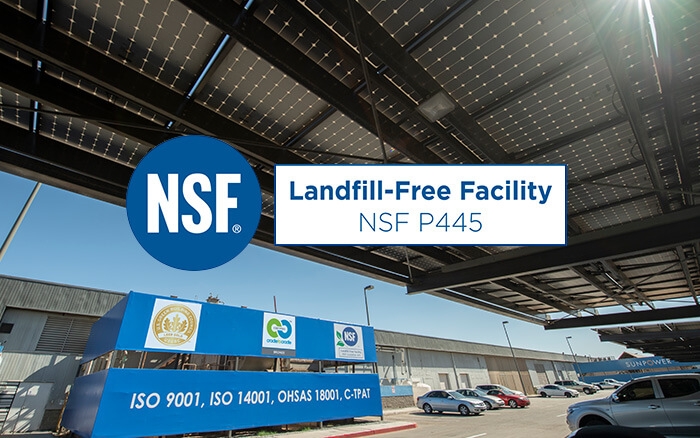
Mexicali: the first and only Zero-Waste to Landfill solar factory in the world, source of SunPower panels.
What does it mean to be Landfill Free?
Being Landfill Free means an organization sends no more than 1% of waste to the landfill and less than 10% of waste to Waste to Energy (incineration). Our Mexicali site sent only 0.65% of its waste to landfill in 2019. About 7% of site waste was converted into Waste to Energy, meaning the waste was burned and the resulting energy harvested can be put to use again on the local electrical grid.
This is no small feat for a facility that employs more than 1,000 workers and assembles more than 500,000 of the solar industry's most advanced solar panels annually. These panels then ship to many of the 100+ global markets where SunPower products are sold.
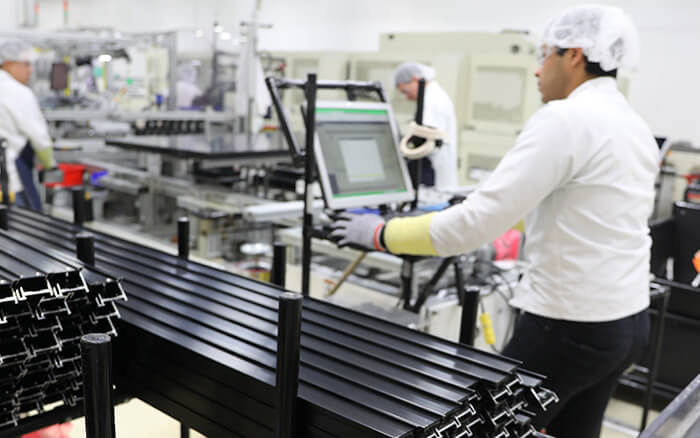
Workers in the Mexicali factory assemble solar panels.
Gustavo Carrillo, an independent auditor who leads Mexicali's audit process for NSF, credited SunPower for its efforts:
The comprehensive approach has yielded improvements in the handling and segregation of wastes. A detailed selection process for downstream waste vendors has helped reduce waste at the source as well. The local team has improved onsite food waste processes and even initiated a small onsite farming operation in Mexicali.
Added Carrillo, "As organic food waste stream was a concern, SunPower defined and implemented a proper onsite recycling process by acquiring a food waste recycling machine to process food scraps and produce soil amendment for their own vegetable farm. Now they grow their own vegetables and greens for their own canteen/kitchen activities making this a circular process to support their Landfill-Free Certification."
The experience gained through the process inspired the local team to share this knowledge with the local community through in-house gardens awareness and training workshops.
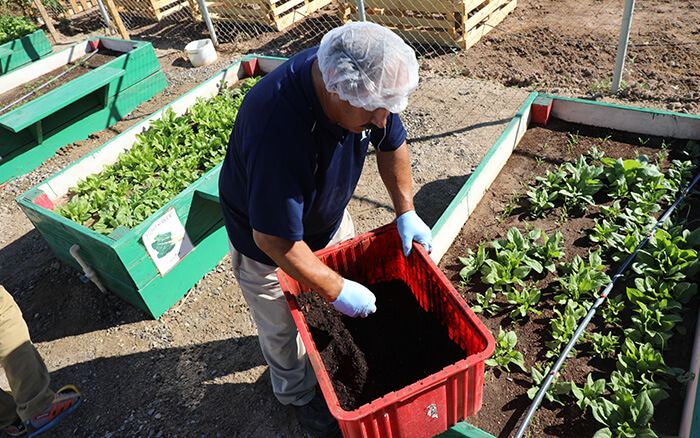
A worker tends to the on-site compost garden fed by local organic waste.
Setting New Goals
SunPower's goal is to certify each of our facilities under the Landfill-Free standard, and we're continuously improving to achieve this goal.
We are currently working on the process at our Ensenada, Mexico, manufacturing facility, which is a newer and smaller operation than the Mexicali site. The site's processes are distinct from Mexicali as much of the machinery is automated. The team remains undaunted – after all, we created solar's first Landfill-Free facility. We're ready to launch the next one.
